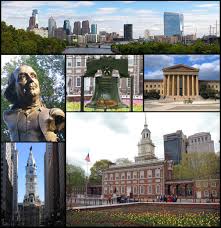Government Grants
Business Grants
Home Owner Programs
Federal Programs
About Us
Prevention Technology Transfer Centers Cooperative Agreements (Short Title: PTTC)
The Substance Abuse and Mental Health Services Administration (SAMHSA), Center for Substance Abuse Prevention (CSAP) is accepting applications for fiscal year (FY) 2019 Prevention Technology Transfer Centers (PTTC) Cooperative Agreements.
The purpose of this program is to establish a PTTC Network to provide training and technical assistance services to the substance abuse prevention field including professionals/pre-professionals, organizations, and others in the prevention community.
The PTTCs will work directly with SAMHSA and across the PTTC Network on activities aimed at improving implementation and delivery of effective substance abuse prevention interventions.
PTTCs will provide prevention skills trainings and technical assistance services that are:
tailored to meet the needs of recipients and the prevention field; based in prevention science and use evidence-based and promising practices; and leverage the expertise and resources available through the alliances formed within and across the HHS regions and the PTTC network.
The purpose of this program is to establish a PTTC Network to provide training and technical assistance services to the substance abuse prevention field including professionals/pre-professionals, organizations, and others in the prevention community.
The PTTCs will work directly with SAMHSA and across the PTTC Network on activities aimed at improving implementation and delivery of effective substance abuse prevention interventions.
PTTCs will provide prevention skills trainings and technical assistance services that are:
tailored to meet the needs of recipients and the prevention field; based in prevention science and use evidence-based and promising practices; and leverage the expertise and resources available through the alliances formed within and across the HHS regions and the PTTC network.
Related Programs
Substance Abuse and Mental Health Services_Projects of Regional and National Significance
Department of Health and Human Services
Agency: Department of Health and Human Services
Office: Substance Abuse and Mental Health Services Adminis
Estimated Funding: $1,950,000
Office: Substance Abuse and Mental Health Services Adminis
Estimated Funding: $1,950,000
Obtain Full Opportunity Text:
TTPSF Application Instructions
Additional Information of Eligibility:
Eligible applicants are domestic public and private not-for-profit entities.
For example:• State and local governments;• Federally recognized American Indian/Alaska Native (AI/AN) tribes, tribal organizations, Urban Indian Organizations (UIOs), and consortia of tribes or tribal organizations;• Public or private universities and colleges; and• Community- and faith-based organizations.Tribal organization means the recognized body of any AI/AN tribe; any legally established organization of AI/ANs which is controlled, sanctioned, or chartered by such governing body, or which is democratically elected by the adult members of the Indian community to be served by such organization, and which includes the maximum participation of AI/ANs in all phases of its activities.
Consortia of tribes or tribal organizations are eligible to apply, but each participating entity must indicate its approval.
A single tribe in the consortium must be the legal applicant, the recipient of the award, and the entity legally responsible for satisfying the grant requirements.Urban Indian Organization (UIO) (as identified by the Office of Indian Health Service Urban Indian Health Programs through active Title V grants/contracts) means a non-profit corporate body situated in an urban center governed by an urban Indian-controlled board of directors, and providing for the maximum participation of all interested Individuals and groups, which body is capable of legally cooperating with other public and private entities for the purpose of performing the activities described in 503(a) of 25 U .S.C.
§ 1603.
UIOs are not tribes or tribal governments and do not have the same consultation rights or trust relationship with the federal government.
Full Opportunity Web Address:
http://flh.fhwa.dot.gov/programs/ttp/safety/ttpsf-2013.htm
Contact:
Agency Email Description:
FOACSAP@samhsa.hhs.gov
Agency Email:
Date Posted:
2018-05-11
Application Due Date:
Archive Date:
2018-08-09
Social Entrepreneurship
Spotlight
When it Comes to Social Enterprises, Failure is the Best Platform for Innovation

In the world of social enterprises, failure is a cringe-worthy moment nobody wants to talk about. But, social entrepreneurs can benefit from their failures.

